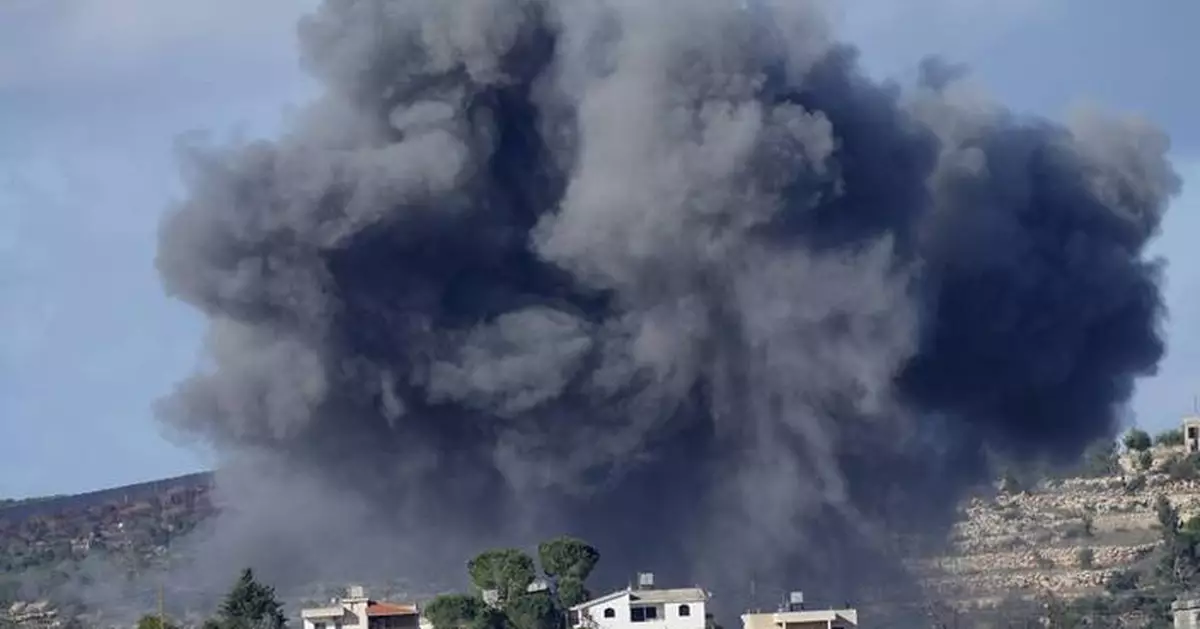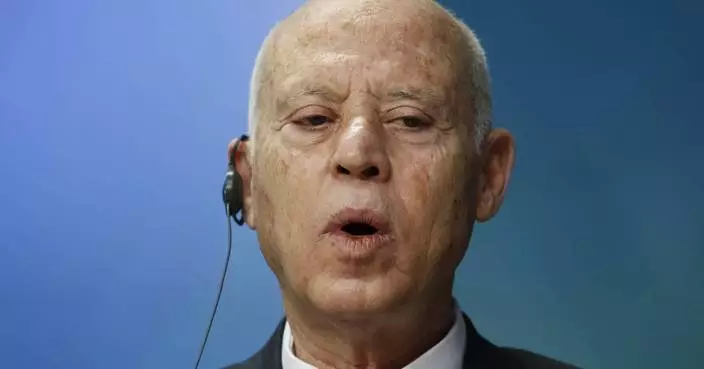BEIRUT (AP) — The ferocious exchange of fire by Hezbollah and the Israeli military is raising fears of a regional war beyond the tense border.
The risks for Lebanon are far greater than in 2006, when a monthlong war with Israel ended in a draw. Lebanon has struggled with years of political and economic crises that left it indebted, without a stable electricity supply, a proper banking system and with rampant poverty.
Click to Gallery
BEIRUT (AP) — The ferocious exchange of fire by Hezbollah and the Israeli military is raising fears of a regional war beyond the tense border.
FILE - People inspect their destroyed houses that were hit by an Israeli airstrike, in Aita al-Shaab village, south Lebanon, June 29, 2024. (AP Photo/Mohammed Zaatari, File)
FILE - Passengers whose flights were cancelled sit at the departure terminal ground of Rafik Hariri International Airport in Beirut, Lebanon, Aug. 5, 2024. (AP Photo/Hussein Malla, File)
FILE - A civil defense worker inspects destroyed houses that were hit by an Israeli airstrike, in Chebaa, a Lebanese town near the border with Israel, south Lebanon, June 26, 2024. (AP Photo/Hussein Malla, File)
FILE - A damaged Israeli military position targeted by Hezbollah fighters is seen on the top of Mount Hermon in the Israeli-controlled Golan Heights, where the borders among Israel, Syria and Lebanon meet are seen from Chebaa, a Lebanese town near the border with Israel, south Lebanon, June 26, 2024. (AP Photo/Hussein Malla, File)
FILE - Black smoke rises from an Israeli airstrike on the outskirts of Aita al-Shaab, a Lebanese border village with Israel as it is seen from Rmeish village in south Lebanon, Nov. 21, 2023. (AP Photo/Hussein Malla, File)
And with Hezbollah’s military power significantly greater, there are concerns that a new war would be far more destructive and prolonged.
Can Lebanon afford any of it?
Since Hezbollah and Israel began firing rockets and drones at each other a day after the start of the Israel-Hamas war in Gaza on Oct. 7, the conflict has been mostly limited to border towns. But with the threat of a wider war, Lebanon has scrambled to equip hospitals with supplies and prepare public schools to open up to people seeking shelter.
A rare Israeli airstrike in southern Beirut last month that killed a top Hezbollah commander set off a flurry of meetings between humanitarian organizations and the Lebanese government, said Laila Al Amine, who heads the Beirut office of international relief organization Mercy Corps. It's one of some 60 organizations helping the government with its relief efforts.
The government and U.N. agencies prepared a comprehensive response plan this month outlining two possible scenarios: a limited escalation that would resemble the 2006 war, with an estimated 250,000 people displaced, and a worst-case scenario of “uncontrolled conflict” that would displaced at least 1 million people.
The U.N.-drafted plan, a copy of which was obtained by The Associated Press, projects a monthly cost of $50 million in case of a limited escalation and $100 million if an all-out war breaks out.
The Lebanese government said that funding for the emergency will come from creditors and humanitarian aid organizations. But the authorities have struggled to find money to care for 100,000 currently displaced and an estimated 60,000 people living in conflict areas, which is costing about $24 million a month.
Environment Minister Nasser Yassin, who is spearheading relief operations, told reporters after an emergency government meeting Sunday that the morning attacks won't change the plan.
“It already presents scenarios of all the possibilities that could happen, among them is an expansion of the hostilities,” said Yassin.
Decades of corruption and political paralysis have left Lebanon’s banks barely functional, while electricity services are almost entirely in the hands of private diesel-run generator owners and fuel suppliers. Public service institutions rely on aid groups and international donors to function at a barebones level. Lebanese who once lived in relative comfort are receiving food and financial aid to survive.
In 2020, the COVID-19 pandemic further battered the economy, and the Beirut port explosion flattened several neighborhoods in the heart of the capital. Lebanon’s banks and the ruling elite have resisted painful reforms as a condition for an International Monetary Fund bailout while the infrastructure continued to wither and living conditions worsened.
Tourism, which officials had relied on to help rebuild the economy, has also taken a hit since the border conflict with Israel.
And unlike in 2006, Lebanon is hosting more than 1 million Syrian refugees who fled the conflict in their country. Health Minister Firas Abiad told the AP earlier this month that the Lebanese health system is ill-equipped to treat the additional population in the event of an all-out war, as international funding for Syrian refugees continues to decline.
In April, Yassin said the country had only half the money needed to respond to the conflict and ensuing humanitarian needs.
In 2006, Israel bombed the runways of Lebanon’s only airport, putting it largely out of commission, and imposed an air and sea blockade. Its bombardment crippled critical infrastructure and flattened neighborhoods, with damage and losses worth $3.1 billion, according to the World Bank.
But aid groups eventually were able to send supplies through the country’s ports and at times through the airport using the remaining limited runway space. In their assessment of the war, the U.N. said that their relief efforts was not in response to a humanitarian crisis. “People did not die from poor sanitation, hunger or disease. They died from bombs and shells,” U.N. OCHA said in a report a month after the war.
Many Lebanese were able to flee to neighboring Syria, where an uprising in 2011 plunged the country into a civil war. It's unclear how easy crossing the border would be this time, both for civilians and aid groups.
It is also unclear whether the Beirut port, still not fully rebuilt after the devastating blast in 2020, would have sufficient capacity in case of a wider war. Its damaged grain silos collapsed in 2022, and the country relies on minimal food storage due to the financial crisis.
“Lebanon apparently has stocks of food and fuel for two-three months, but what happens beyond this duration?” Al Amine said. “We only have one airport and we can’t transport things through our land borders. It would be difficult to bring items into the country.”
In 2006, Hezbollah reportedly had some 15,000 rockets in its arsenal, “but more recent unofficial estimates suggest this number has multiplied by almost 10 times,” said Dina Arakji, associate analyst at U.K.-based risk consultancy firm Control Risks.
The group has also “acquired more advanced weaponry, including precision missiles and variants of Iranian arms, as well as Chinese and Russian weaponry,” she said.
Hezbollah, which relies on a network of Iran-backed allied groups that could enter the conflict, has also substantially expanded its drone arsenal and capabilities, against which Israeli air defenses are less effective.
Lebanese officials and international diplomats hope that an elusive cease-fire agreement in Gaza will bring to calm in southern Lebanon. Hezbollah has said it will halt its attacks along the border if there is a cease-fire in Gaza.
Associated Press videographer Ali Sharafeddine contributed to this report.
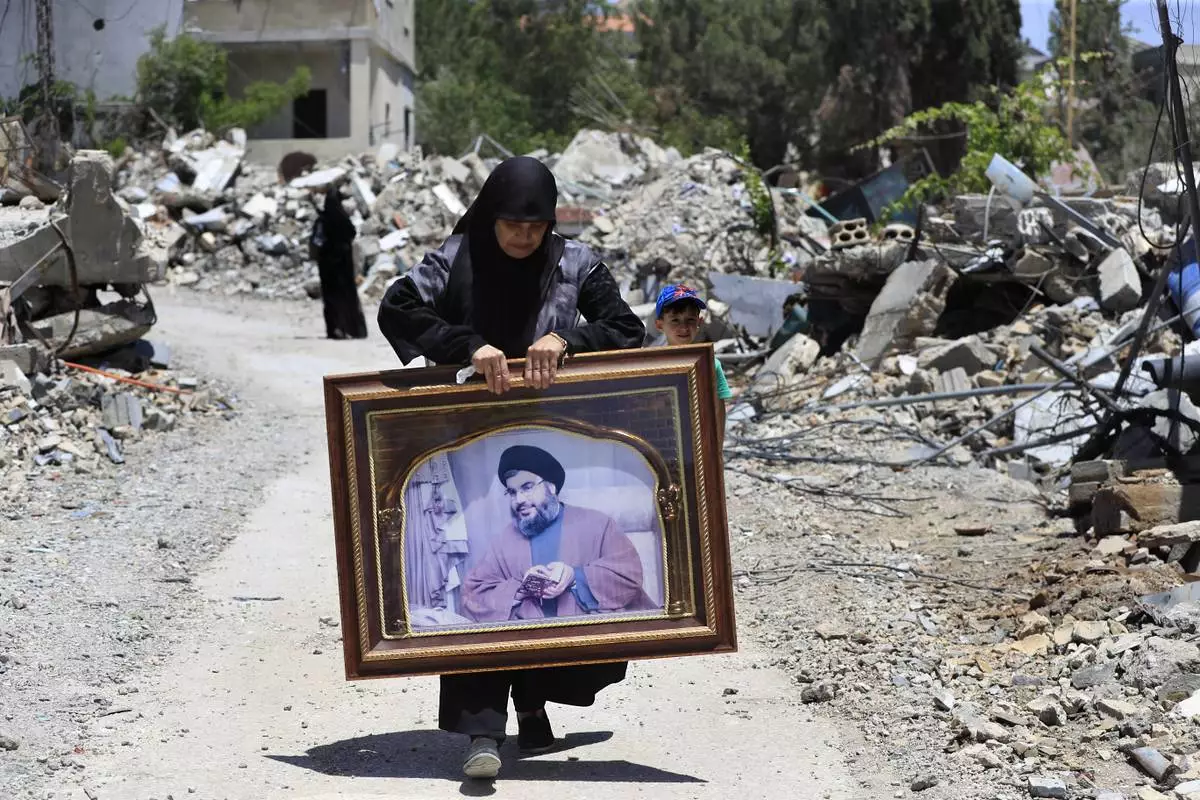
FILE - A woman carries a frame that shows a portrait for Hezbollah leader Sayyid Hassan Nasrallah, as she passes by destroyed houses that were hit by Israeli airstrikes, in Aita al-Shaab, a Lebanese border village with Israel, south Lebanon, June 29, 2024. (AP Photo/Mohammed Zaatari, File)
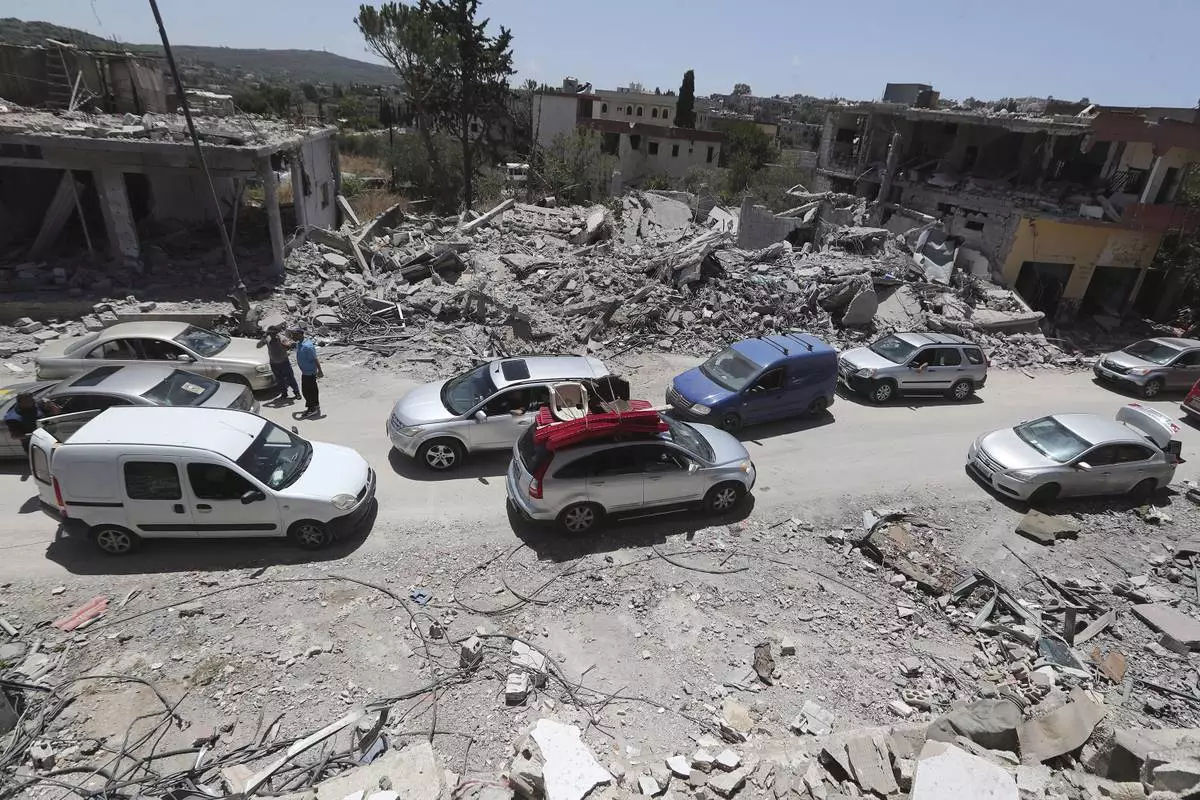
FILE - People inspect their destroyed houses that were hit by an Israeli airstrike, in Aita al-Shaab village, south Lebanon, June 29, 2024. (AP Photo/Mohammed Zaatari, File)

FILE - Passengers whose flights were cancelled sit at the departure terminal ground of Rafik Hariri International Airport in Beirut, Lebanon, Aug. 5, 2024. (AP Photo/Hussein Malla, File)
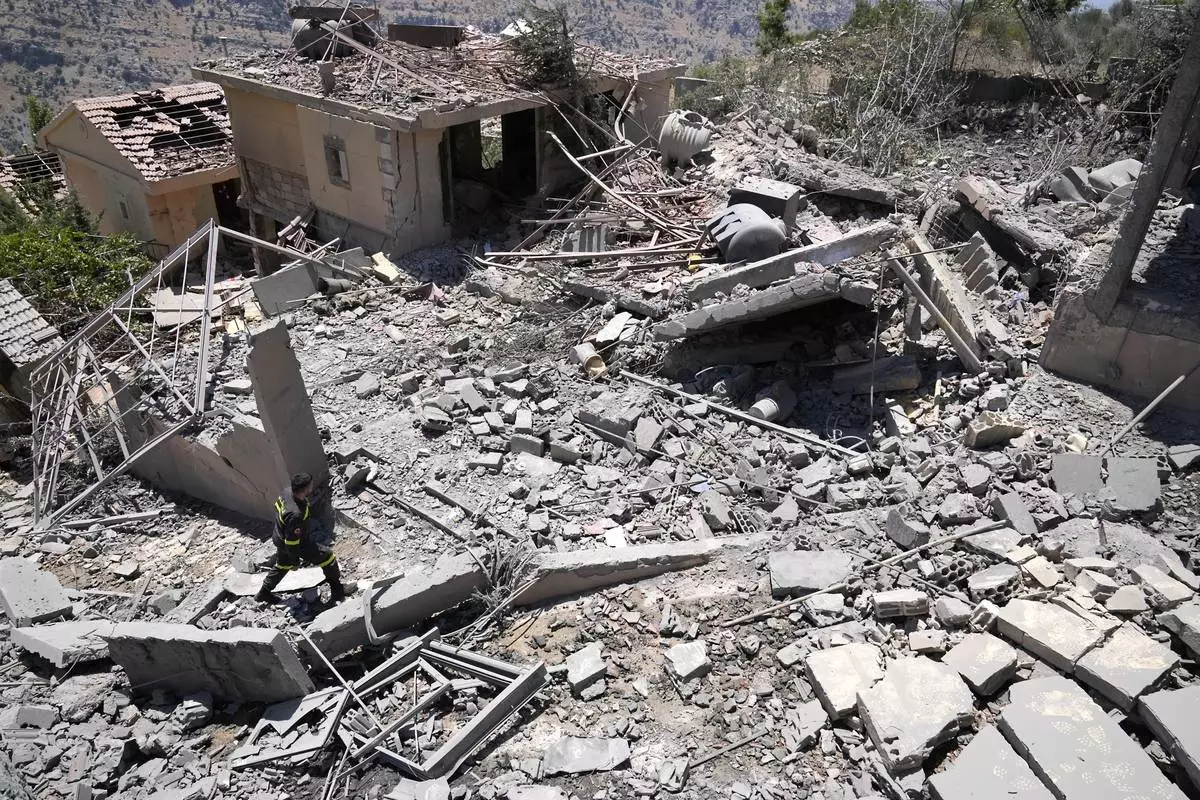
FILE - A civil defense worker inspects destroyed houses that were hit by an Israeli airstrike, in Chebaa, a Lebanese town near the border with Israel, south Lebanon, June 26, 2024. (AP Photo/Hussein Malla, File)
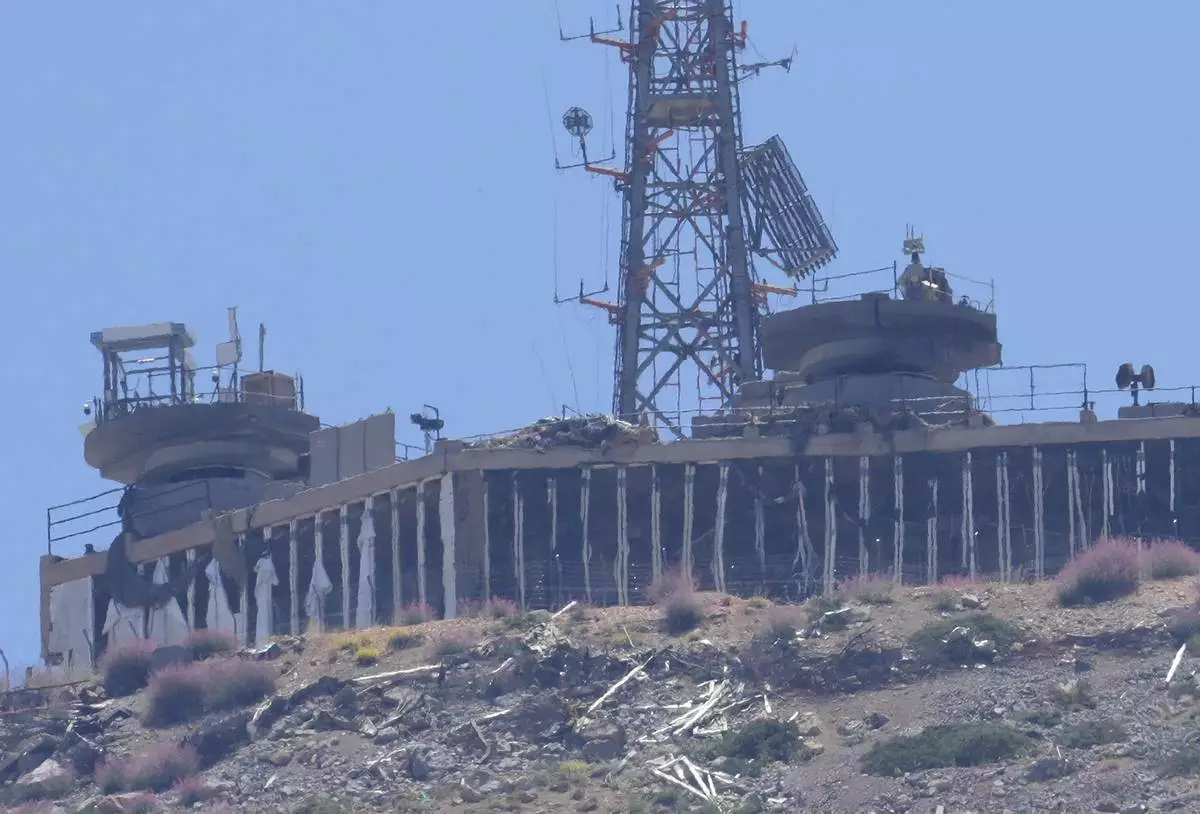
FILE - A damaged Israeli military position targeted by Hezbollah fighters is seen on the top of Mount Hermon in the Israeli-controlled Golan Heights, where the borders among Israel, Syria and Lebanon meet are seen from Chebaa, a Lebanese town near the border with Israel, south Lebanon, June 26, 2024. (AP Photo/Hussein Malla, File)
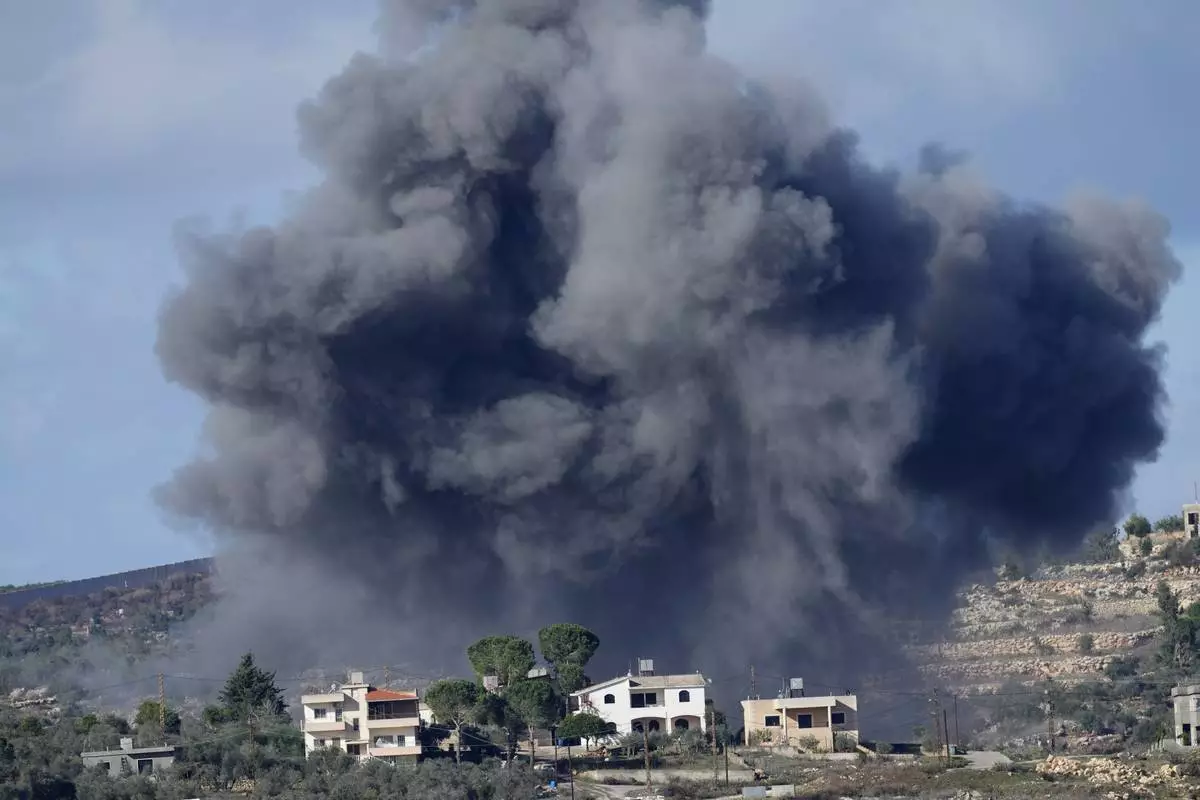
FILE - Black smoke rises from an Israeli airstrike on the outskirts of Aita al-Shaab, a Lebanese border village with Israel as it is seen from Rmeish village in south Lebanon, Nov. 21, 2023. (AP Photo/Hussein Malla, File)
WASHINGTON (AP) — Ukraine’s push to ease restrictions on the use of weapons from the United States and Britain will be discussed Friday in White House talks between President Joe Biden and Prime Minister Keir Starmer.
Ukraine wants approval to use some weapons to strike deeper into Russia and there are signs Biden might shift U.S. policy in response. Russian President Vladimir Putin warned that Ukraine’s use of long-range weapons would put NATO at war with Moscow.
While the issue is expected to be at the top of the agenda for the meeting, it appeared unlikely that Biden and Starmer would announce any policy changes at this time, according to two U.S. officials familiar with planning for the talks. The officials spoke on condition of anonymity because they were not authorized to discuss the private deliberations.
During this week’s visit to Kyiv by Secretary of State Antony Blinken and British Foreign Secretary David Lammy, Ukrainian officials renewed their pleas to use Western-provided long-range missiles against targets deeper inside Russia.
Blinken said he had “no doubt” that Biden and Starmer would discuss the matter, noting the U.S. has adapted and “will adjust as necessary” as Russia’s battlefield strategy has changed.
Blinken spoke similarly in May, shortly before the U.S. allowed Ukraine to use American-provided weapons just inside Russian territory. The permitted distance has been largely limited to cross-border targets deemed a direct threat, out of concerns about further escalating the conflict.
Biden also has hinted that a change could be afoot. In an exchange with reporters this week about whether he was ready to ease weapons restrictions on Ukraine, he responded, “We’re working that out now.”
Putin said Thursday that allowing long-range strikes “would mean that NATO countries, the United States, and European countries are at war with Russia. … If this is so, then, bearing in mind the change in the very essence of this conflict, we will make appropriate decisions based on the threats that will be created for us.”
His remarks were in line with the narrative the Kremlin has promoted since early in the Ukraine war, accusing NATO countries of de-facto participation in the conflict and threatening a response.
Earlier in the year, Putin warned that Russia could provide long-range weapons to others to strike Western targets in response to NATO allies allowing Ukraine to use their arms to attack Russian territory, saying it “would mark their direct involvement in the war against the Russian Federation, and we reserve the right to act the same way.”
Starmer, in response to Putin's comments Thursday, said on his way to the U.S. that Britain does not seek any conflict with Russia.
“Russia started this conflict," Starmer said. “Russia illegally invaded Ukraine. Russia could end this conflict straight away.”
He added: “Ukraine has the right to self-defense and we’ve obviously been absolutely fully supportive of Ukraine’s right to self-defense — we’re providing training capability, as you know."
“But we don’t seek any conflict with Russia — that’s not our intention in the slightest," Starmer said.
Ukraine's president, Volodymyr Zelenskyy, has pressed U.S. and allied military leaders to go much further. He argues that the U.S. must allow Ukraine to target Russian air bases and launch sites far from the border as Russia has stepped up assaults on Ukraine’s electricity grid and utilities before the winter.
Zelenskyy also wants more long-range weaponry from Washington, including the Army Tactical Missile System, known as ATACMS, for strikes in Russia.
ATACMS would not be the answer to the main threat Ukraine faces from long-range Russian glide bombs, which are being fired from more than 300 kilometers (185 miles) away, beyond the ATACMS' reach, said Lt. Col. Charlie Dietz, Pentagon spokesperson.
American officials also do not believe they have enough of the weapon systems available to provide Ukraine with the number to make a substantive difference to conditions on the ground, one of the U.S. officials said.
During a meeting of allied defense ministers last week, Defense Secretary Lloyd Austin said he did not believe providing Ukraine with long-range weapon systems would be a game-changer. He noted that Ukraine has already been able to strike inside Russia with its own internally produced systems, including drones.
“I don’t believe one capability is going to be decisive, and I stand by that comment,” Austin said.
“As of right now, the policy has not changed," Maj. Gen. Pat Ryder, Pentagon press secretary, said Thursday.
Starmer said he was visiting Washington for “strategic meetings to discuss Ukraine and to discuss the Middle East.” It’s the prime minister’s second meeting with Biden since his center-left government was elected in July.
It comes after Britain last week diverged from the U.S. by suspending some arms exports to Israel because of the risk they could be used to break international law.
Their meeting also comes before this month’s annual meeting of global leaders at the U.N. General Assembly. The White House talks were scheduled in part to help Biden and Starmer compare notes on the war in Ukraine, the languishing efforts to get a cease-fire deal in Gaza, mutual concerns in the Indo-Pacific, and other issues before the U.N. meeting.
The White House also has tried in recent days to put a greater emphasis on the nexus between the war in Ukraine and the conflict in the Middle East that was sparked after Iranian-backed Hamas militants in Gaza launched attacks on Israel on Oct. 7.
The Biden administration said this week that Iran recently delivered short-range ballistic weapons to Russia to use against Ukraine, a transfer that White House officials worry will allow Russia to use more of its arsenal for targets far beyond the Ukrainian front line while employing Iranian warheads for closer-range targets.
In turn, the U.S. administration says Russia has been tightening its relationship with Iran, including by providing it with nuclear and space technology.
“This is obviously deeply concerning,” White House national security spokesperson John Kirby said of the missile transfer. “And it certainly speaks to the manner in which this partnership threatens European security and how it illustrates Iran’s destabilizing influence now reaches well beyond the Middle East.”
Associated Press writers Jill Lawless in London, Dasha Litvinova in Tallinn, Estonia and Tara Copp, and Diplomatic Writer Matthew Lee in Warsaw, Poland, contributed to this report.

President Joe Biden speaks during the Violence Against Women Act 30th anniversary celebration on the South Lawn of the White House, Thursday, Sept. 12, 2024, in Washington. (AP Photo/Manuel Balce Ceneta)

Britain's Prime Minister Keir Starmer, center, talks to the media on board his plane as he flies to Washington DC., Thursday Sept. 12, 2024. (Stefan Rousseau/Pool via AP)








